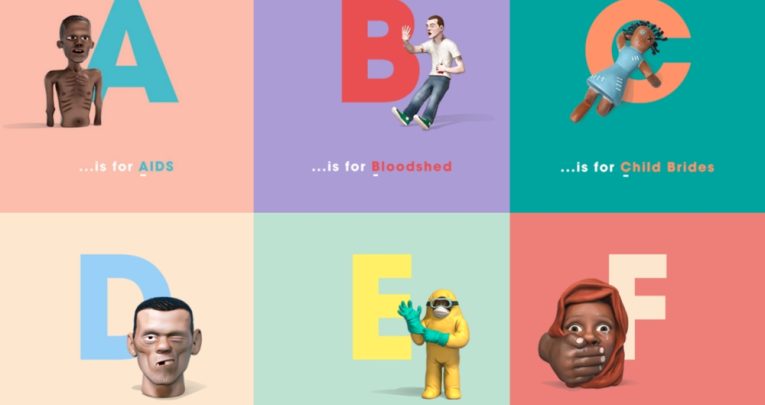Alphabet of Literacy Campaign Launched With Attention-Grabbing Animated Short

Today sees the launch of a new campaign by Project Literacy – an initiative aimed at combating illiteracy, which is estimated by the UN to affect some 781 million people aged 15 and over throughout the world.. The Alphabet of Illiteracy campaign aims to highlight how numerous social, economic and environmental harms – ranging from […]

- by Callum Fauser
- Editor of Teach Secondary magazine

Today sees the launch of a new campaign by Project Literacy – an initiative aimed at combating illiteracy, which is estimated by the UN to affect some 781 million people aged 15 and over throughout the world..
The Alphabet of Illiteracy campaign aims to highlight how numerous social, economic and environmental harms – ranging from child marriage and malnutrition to gender inequality and female genital mutilation – can be addressed more effectively by making efforts to tackle illiteracy a core component of such campaigning.
Commenting on the Alphabet of Literacy campaign, Dan Wagner, Unesco’s chair in learning and literacy at the University of Pennsylvania, said, ‘Literacy is a key component in achieving the UN’s sustainable development goals. Without literacy, each of the 17 goals will be limited by the inability of citizens to be sufficiently informed on key issues, and less empowered to take action. There is a strong argument that tackling illiteracy and low literacy, as a ‘foundational’ social problem, would pay greater dividends than tackling each issue separately.”
A short animated film has been released to promote the campaign across social media channels.
Speaking ahead of a launch event at the Houses of Parliament, Project Literacy ambassador Lily Cole further commented, “When we have these different global issues we take a Band-Aid approach – how can we fix this problem? – rather than investing time and energy looking at why these problems exist … so we can start to solve the root problems of these issues. If we don’t solve the root problems, we’re just dealing with different symptoms again and again.
Project Literacy is backed by Pearson and a number of partner organisations – including The National Literacy Trust, Microsoft, The Big Issue Foundation and the BookTrust, among others.
For more information, visit www.projectliteracy.com or follow @rewritinglives






